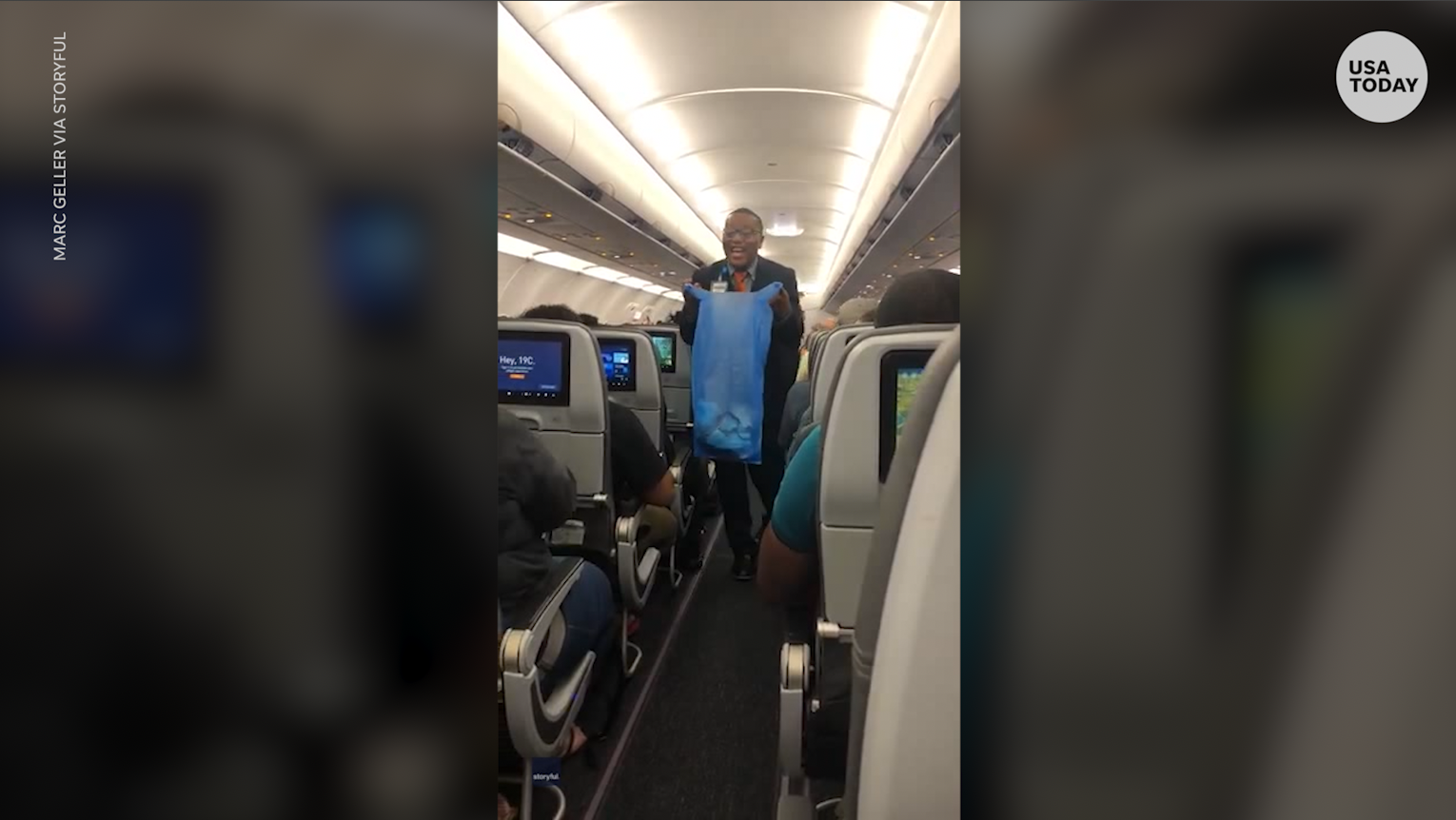
Since the mask mandate was overturned, travel is looking a lot different. Government officials were tied to a human trafficking probe in Georgia. And an Oregon woman was identified as a victim of the “Happy Face Killer” in a 30-year-old cold case.
👋 It’s Laura here with Tuesday’s news! Ready? Let’s go.
But first, a happy accident! 💰 An Iowa man won a $1 million Mega Millions prize from a lotto ticket he says was a “mistake.” Nice mistake!
The Short List is a snappy USA TODAY news roundup. Subscribe to the newsletter here or text messages here.
Now that the mask mandate is overturned…
Travel is looking completely different today than it did yesterday – or any day in the past two years – as masks are now optional on just about every major mode of transportation. From airlines to ride-share companies, transportation providers have quickly pivoted after a federal judge in Florida voided the federal mask mandate Monday. U.S. District Court Judge Kathryn Kimball Mizelle said the mandate exceeded the authority of the Centers for Disease Control and Prevention, which she said failed to justify the order and didn’t follow proper rule-making procedures. Every major U.S. airline has now made face masks optional for passengers and employees. Some airlines reminded travelers to respect the decisions of people who choose to continue wearing masks. Ride-sharing companies like Lyft and Uber have also made masks optional. The federal mask mandate was extended last week through May 3 after a rise in cases of coronavirus subvariants.
- Airlines dropped mask mandates. But where are masks still required?
- Moderna combo COVID booster appears more effective against variants.
- ‘Bit of whiplash’: Public transit riders encounter patchwork of mask rules.
- Aboard one of the last masked flights, how crew, passengers found out masks weren’t required.
Biden restores environmental law on highways, bridges, other projects
The Biden administration moved Tuesday to restore federal requirements that government agencies evaluate the environmental impacts of their actions. President Donald Trump had stripped the provisions from the National Environmental Policy Act. Biden’s move is the latest in a contentious back-and-forth over rules signed into law by President Richard Nixon and enacted in 1970. Supporters argue the law is essential to protect the environment from climate change and ensure federal agencies work with communities to consider alternatives, while critics of the law have long held that it slows progress and drives up costs for essential infrastructure projects.
- Fire, water, wind: Hit by growing disasters, Americans struggle to pay.
- Biden’s quandary: Pushing oil to cut gas prices while promoting clean energy.
What everyone’s talking about
- Elon Musk says he doesn’t own a home, crashes at friends’ houses.
- Man linked to Mac Miller’s overdose sentenced to 11 years in prison.
- University to pay professor $400,000 in case over student’s pronouns.
- Florida Gov. DeSantis wants legislature to end Disney’s special status.
- Johnny Depp takes the stand, disputes claims in Amber Heard libel trial.
The Short List is free, but several stories we link to are subscriber-only. Consider supporting our journalism and become a USA TODAY digital subscriber today.
‘Beyond troubling’
Two Georgia labor officials whose jobs involved protecting or advocating for farmworkers have links to one of the largest U.S. human trafficking cases ever prosecuted involving foreign agricultural laborers brought here on seasonal visas. In October, a grand jury indicted 24 people on charges of conspiring to engage in forced labor and other crimes. Federal prosecutors say the defendants required guest farmworkers to pay illegal fees to obtain jobs, withheld their IDs so they could not leave, made them work for little or no pay, housed them in unsanitary conditions, and threatened them with deportation and violence. Two workers died in the heat, according to the indictment. Court records say five workers were kidnapped and one of them was raped. Read more here.
- Operation Blooming Onion: ‘Modern-day slavery’ revealed in federal indictment.
New Russian attacks signify a new phase of war in Ukraine
Russia’s new attacks in eastern Ukraine are what the Pentagon believes to be a prelude to a major offensive in the Donbas region, a senior U.S. Defense Department official said Tuesday. The attacks, southwest of Donetsk and south of Izyum, have come as Russia continues to add to its forces in Ukraine and resupply those already inside the country, said the official who spoke on condition of anonymity to discuss intelligence findings. Both Ukrainian and Russian officials acknowledged Tuesday that the war had entered a new phase. Read the latest updates here.
- Tech CEO, family spend spring break helping colleagues in Ukraine.
- USA TODAY on Telegram: Join our new Russia-Ukraine war channel.
- Russia’s arsenal: What weapons are being used in Ukraine invasion?
Real quick
- Whose child is this? Police need help identifying boy found dead.
- Man killed at car wash after becoming trapped by the machinery.
- Panthers linebacker arrested after ex says he threatened to kill her.
- Sci-fi in real life: NASA doctor ‘holoports’ to International Space Station.
- Patrick Lyoya was shot in the back of the head by Michigan officer, autopsy shows.
Woman murdered by ‘Happy Face Killer’ identified in 30-year cold case
On June 3, 1993, Patricia Skiple’s body was found by a truck driver who stopped on the side of California State Route 152 in unincorporated Gilroy, about a half-hour south of San Jose. An autopsy classified her death as “undetermined,” and with no leads on her identity, authorities referred to her as “Blue Pacheco.” Detectives reexamined the case a few years ago, and with the help of DNA Doe Project, a nonprofit organization that provides investigative genetic genealogy services, they were able to uncover Skiple’s identity last week and confirm the identity of her killer. Skiple, known to her family and friends as “Patsy,” was a mother and resident of Colton, Oregon. She would have been about 45 at the time she was killed by Keith Hunter Jesperson, who is now 67. Jesperson is serving four life sentences without the possibility of parole for murders in three stat




